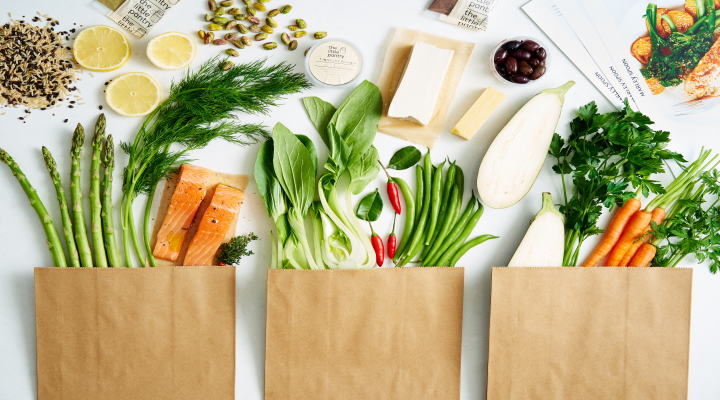Rolf Weber, CEO and co-founder of Marley Spoon Australia, describes 2020 as a year of resilience and transformation. “Between opening the year with fires and floods to now working through a global pandemic, 2020 certainly won’t be forgotten,” Weber says. But 2020 will also be remembered as the year the business reached global profitability for the first time, achieved carbon neutrality and continued to expand globally and deepening its relationships with partners like Woolworths, all while
while experiencing unprecedented demand for its meal kits.
“It’s been a challenging year for retailers, particularly those in the grocery space, including dealing with impacts from drought, bushfires, floods, food shortages, and a global health crisis. All of these external factors have an effect on our supply chain and forces our team to adapt on the fly.”
In the process of navigating these challenges Marley Spoon strengthened its processes, teams and partner relationships, learning lessons along the way. One of the most noticeable external impacts was the high demand for grocery delivery services as shopping chose to avoid busy supermarkets during COVID-19.
The demand is reflected in Marley Spoon’s numbers: just a few weeks into the year the business reached the growth target it had forecast for all of 2020. In the first few months of the year Marley Spoon hired more than 250 new team members and onboarded them without delays to meet customer demand.
Weber attributes the business’ impressive retention rates in part to the continued innovation of his team, including the launch of ready-to-heat meals earlier in 2020.
“The numbers are very strong and customer retention is extremely high, even as the impact of the pandemic has begun to decrease across Australia,” says Weber.
“Ready-to-heat meals had been in product development prior to the pandemic, however the launch was expedited by lockdowns and the demand from the influx of news customers. With many Australians returning to the office in recent months, the number of ready-to-heat meals sold continues to impress and opens future opportunities and streams to reach new customers.”
Grocery trends of 2021
According to Weber, online grocery will continue to grow as a percentage of overall grocery sales, helped by investments from supermarkets and the hospitality sector.
“In 2020, the share doubled, which in our view just laid the foundation for future acceleration. We will continue to see investments by major retailers such as Woolworths and Coles as well of course ourselves which will increase service levels and convenience,” Weber says.
“The hospitality industry will continue to increasingly look at the direct to consumer channel to make up for physical revenue challenges as the pandemic continues to drive uncertainty and risks.”
Another trend Weber highlights is the tightening of household budgets following the economic impact of the pandemic, which Marley Spoon caters for with a second, affordable brand, Dinnerly.
“The economic impact of the pandemic means many customers are seeking to save, so Dinnerly has been growing quickly in both America and Australia. We’ve also been able to launch the brand into Germany and are seeing good initial traction,’ says Weber.
Personalisation of products and services based on customer data are also tipped to be a key differentiator for grocery delivery.
“While delivery will be a defining element of the industry, personalisation and flexibility will separate leaders of the market,” Weber says.
“We view choice as one of the most important elements to our success. The value of variety cannot be understated, particularly while some ingredients became hard to find in supermarkets. Being able to cater to all tastes and dietary needs gives us the ability to cater to more households and provide an elevated platform to capture data and continue to build a better meal kit.”
State of origin
Weber said provenance and quality of ingredients will move up the ranks in importance for a growing number of customers, who are increasingly concerned about their personal impact on the planet.
Marley Spoon is working to provide customers more data and education about their personal impact and opportunities through food choices, e.g. by showing a meal based carbon footprint.
Marley Spoon has established sustainability teams in all its businesses around the globe with a clear road map of actions to achieve a range of targets for 2021 and until 2025.
“We created this roadmap in line with Global Sustainable Development goals and will publish our first ESG report next year,” Weber says.
“We are working closely with all our suppliers on sustainability data collection, creating a baseline data set on which to measure our progress as we go forward.”
“A key goal of Marley Spoon was to become carbon neutral by 2025. After we looked at all the data, we decided to fast track this initiative and already achieved carbon neutral standard this year through focused effort on our carbon footprint reduction and mitigations.”
This article was originally published in the Australian Retail Outlook. You can download the full report here.

